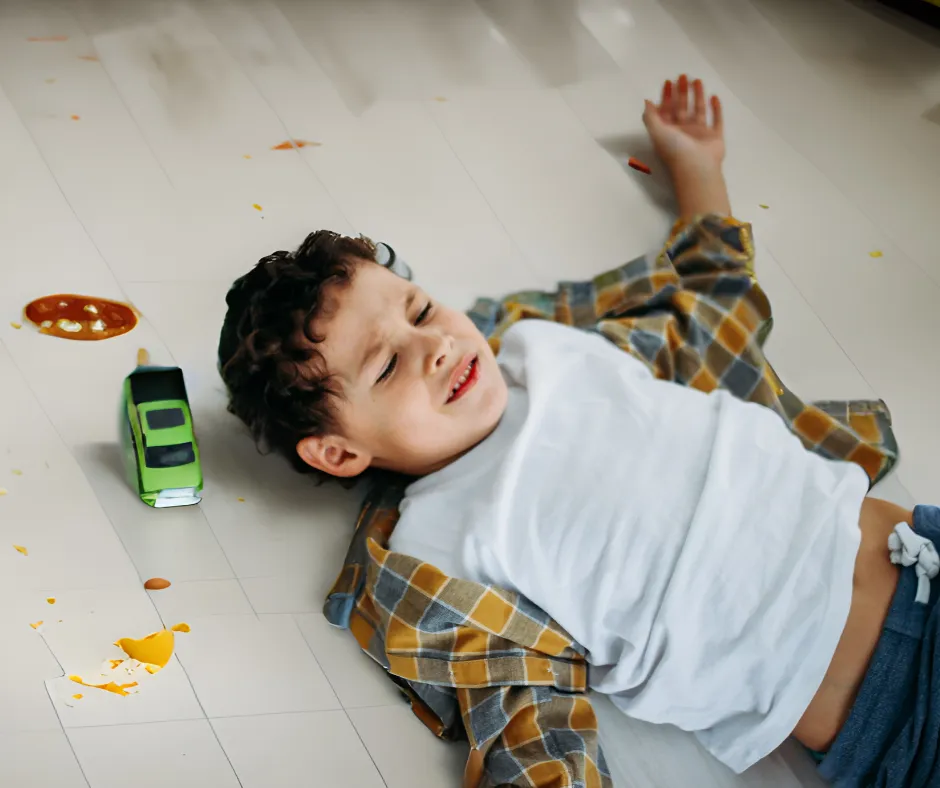Let's Transform the Way You Think About Toddler Anger
This one mindset shift changed everything for me, and I've watched it transform hundreds of families I work with. If you're tired of feeling like you're constantly managing your toddler's anger, this perspective might just change everything for you too.
The Hidden Cost of Misreading Our Children
Picture this: Your toddler is sprawled on the floor of the grocery store, face red, fists clenched, screaming at a pitch that makes other shoppers stare. Your heart races, shame and frustration bubble up, and you find yourself caught between wanting to discipline and wanting to disappear.
What if I told you that this entire scenario—your reaction, your stress, and even your toddler's behavior—stems from one fundamental misunderstanding?

The Truth About Toddler "Anger"
In my years of studying traditional parenting practices across cultures, I've discovered something remarkable: in societies where children consistently grow into calm, confident, and cooperative adults, parents view what we call "anger" entirely differently.
These cultures don't see emotional outbursts as behavioral problems to fix. Instead, they recognize them as valuable signals – like a check engine light on your car. You wouldn't get angry at your car for warning you about a problem, would you?
The Evolutionary Response
Once we understand this perspective, our response can shift dramatically. Here's what this looks like in practice:
Instead of Time-Outs, Try Time-In
When you see signs of "anger," move closer instead of creating distance. This doesn't mean rewarding the behavior; it means acknowledging the signal. A simple, calm presence often does more than any words or consequences.
Create Islands of Predictability
Build regular, rhythmic moments of connection into your day. These aren't elaborate planned activities—they're simple, predictable touchpoints. Maybe it's always carrying them while you make morning coffee or having them work alongside you while folding laundry.
Set Boundaries Like Gravity
Gravity doesn't negotiate or get emotional—it just is. When setting boundaries, aim for this same calm consistency. "We always hold hands in parking lots" delivered calmly and matter-of-factly, works better than lengthy explanations or emotional pleas.
The Transformation in Action
One mom I worked with, Sarah, was at her wit's end with her three-year-old's daily "angry" outbursts. After shifting her perspective to view these moments as signals, she started responding differently. Instead of consequences or negotiations, she moved closer, maintained calm boundaries, and looked for the underlying message.
Within weeks, her son's "anger" episodes decreased dramatically. More importantly, she no longer felt triggered by them. "I finally feel like I understand my child," she told me. "Instead of dreading these moments, I see them as opportunities to connect and guide.

Your Path Forward
This shift in perspective isn't just about managing behavior; it's about fundamentally transforming your relationship with your child. Everything changes when we stop seeing toddler anger as something to fix and start seeing it as valuable communication.
Start by simply observing. The next time your toddler shows signs of "anger," take a breath and ask yourself, "What is this behavior telling me?" You might be surprised by what you discover.
Are you ready to transform your understanding of toddler anger? The peace you're looking for might be just one perspective shift away. Join my free Facebook group 'The Toddler Code™' where I share daily tips and support.